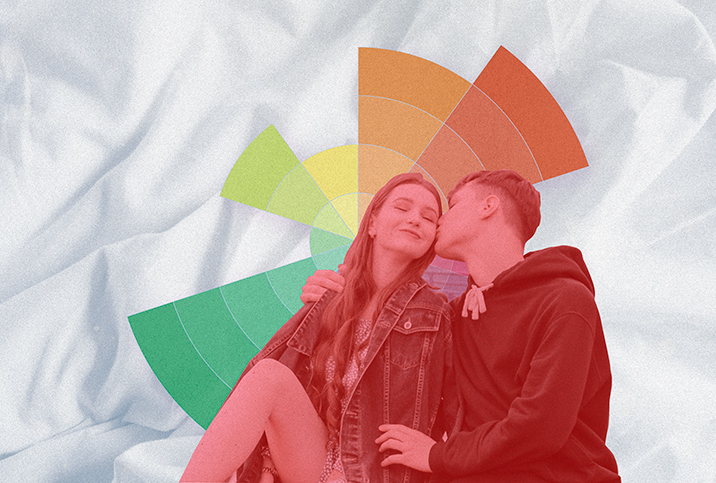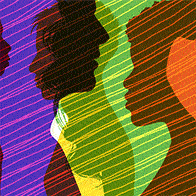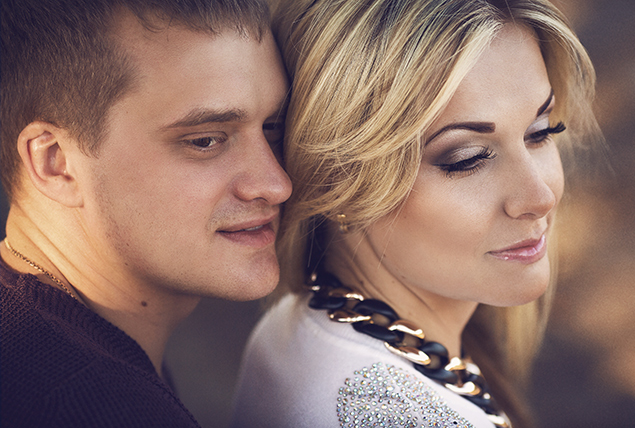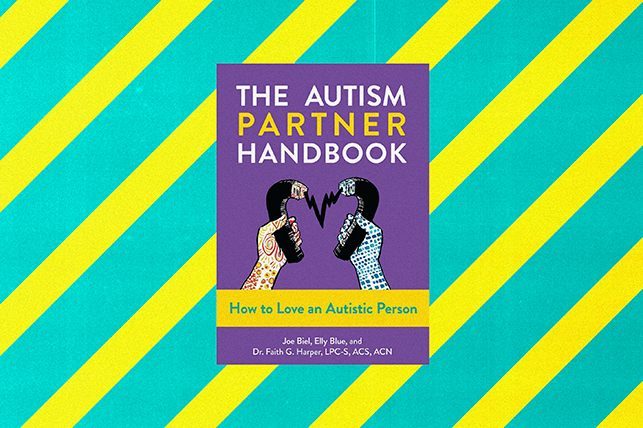Autistic Women Do, Indeed, Enjoy Sex

If I asked you what comes to mind when you hear the word "autism," you would probably think of the autistic people on "Love on the Spectrum," a popular Netflix show where, true to the name, people on the autism spectrum find love. While the experiences of those individuals may be accurate for them, it is not accurate for all autistic people. The autistic experience is largely underrepresented in the media, especially regarding autism and sex.
The sex education class I took in 10th grade promoted abstinence as birth control. The class wasn't autistic-friendly due to the nature of the material and it left me feeling more confused about sexuality than when I entered the class. At 19, I had my first boyfriend, a long-distance relationship that ended in less than a year. Both of us were neuro-mixed, which added to the confusion for both of us.
The relationship was abusive, which I didn't see until after the relationship ended. He blamed me for his sex and porn addiction, made comments about controversial topics like abortion just to get a reaction out of me and sided with people who attacked me.
My experience with this type of relationship and sex as an autistic woman isn't uncommon. The Autism Society published a report indicating that people with disabilities experience abuse four to 10 times more often than people without disabilities. People with an intellectual impairment are at the highest risk of sexual violence. Additionally, in a 2006 survey of 1,500 people with autism, 35 percent had been the victim of a crime; of that group, 13 percent reported being the victim of sexual abuse, 8 percent of sexual assault and 7.5 percent of domestic violence.
Taking the dating leap for autistic people
Jodi Carlton, M.Ed., an autism relationship and neurodiversity expert in Atlanta, offered advice for autistic women considering dates.
"[Go to places that] align with your own interests and values," Carlton said. "Focus on nothing but meeting a new friend first—friend with potential. Always assume a new potential will not turn into a dating partner, because the vast majority will not."
Dating should be flexible and fun—it doesn't mean you'll find "the one" on your first coffee date.
Since women with autism are often under- and misdiagnosed—being three to four times less likely to receive an autism spectrum disorder diagnosis than men—they may face more challenges than men with autism, according to a 2019 paper published by Brigham Young University. Autism's characteristic repetitive mannerisms may be less obvious in women than in men, and cognitive and communication skills are higher in women with autism than in male counterparts. Getting a late diagnosis can lead to worse mental health, marked by conditions such as anxiety, depression and stress, according to a 2017 study published in the Journal of Autism and Developmental Disorders.
I am considered a rare exception since I was diagnosed at the age of 5. Megan Anna Neff, Psy.D., a neurodivergent therapist in Northwest Oregon, said the process for diagnosing girls doesn't account for how autistic females are more socially motivated than autistic males.
"The instruments that we use to measure autism are based on research done on boys with autism," Neff said. "Girls tend to have less of the social difficulties compared to boys, but they tend to have sensory difficulties."
Neff added that autistic women develop a fawning response to social situations in order to blend into their environment, something called "camouflaging."
My personal experience with sex as an autistic woman
A year after the erotic novel "Fifty Shades of Grey" was released, I discovered the kink community, an area popular with people on the autism spectrum. Neff said autistic people find ways to work with their sensory profiles and to make sex tolerable, and they need to create a tighter framework around sexuality, which, for many people, kink provides.
I have personally discovered through play with partners that I need to know what is going to happen during the encounter and that I am hyposensitive when it comes to physical touch. Needing sensory stimulation during intimate interactions seems to be quite common among autistic women such as me who have minor reactions to pain. Since being kinky requires endless communication and safe words, I feel like I have a much stronger support system. Being aware of my sensory needs is helpful as I can apply what I experience in kink play to social situations outside of kink.
Both the autism and kink communities have helped me find myself amid trauma. These communities helped me find the language to describe experiences in my past and gave me tools in navigating the world. I also discovered the importance of communication and how I can communicate my boundaries even when I go nonverbal.
[Autistic people] need to create a tighter framework around sexuality, which, for many people, kink provides.
Ness Cooper, a United Kingdom-based sexologist and relationship coach, emphasized the struggles with sex that an autistic woman may face but said they can be overcome.
"Understanding that sexual expression is individual and that you don't have to conform to others' expectations is important," Cooper said. "As long as the sexual relationship you engage in is consensual, then just be yourself."
The importance of being able to meet partners who reciprocate your needs is greatly underestimated. Learning about healthy relationship dynamics is incredibly important for all people, but especially those with autism.
My sexual journey is far from over, and there is more to discover. While I have had the privilege to be able to express myself, a lot of other people do not get that chance. Having accessible resources about sexuality and different types of expressions serves to benefit the autistic community as a whole and ultimately erase some of the stigmas around autism—challenging those stigmas is critical to have a more accessible, equitable and fair society for everyone.




















